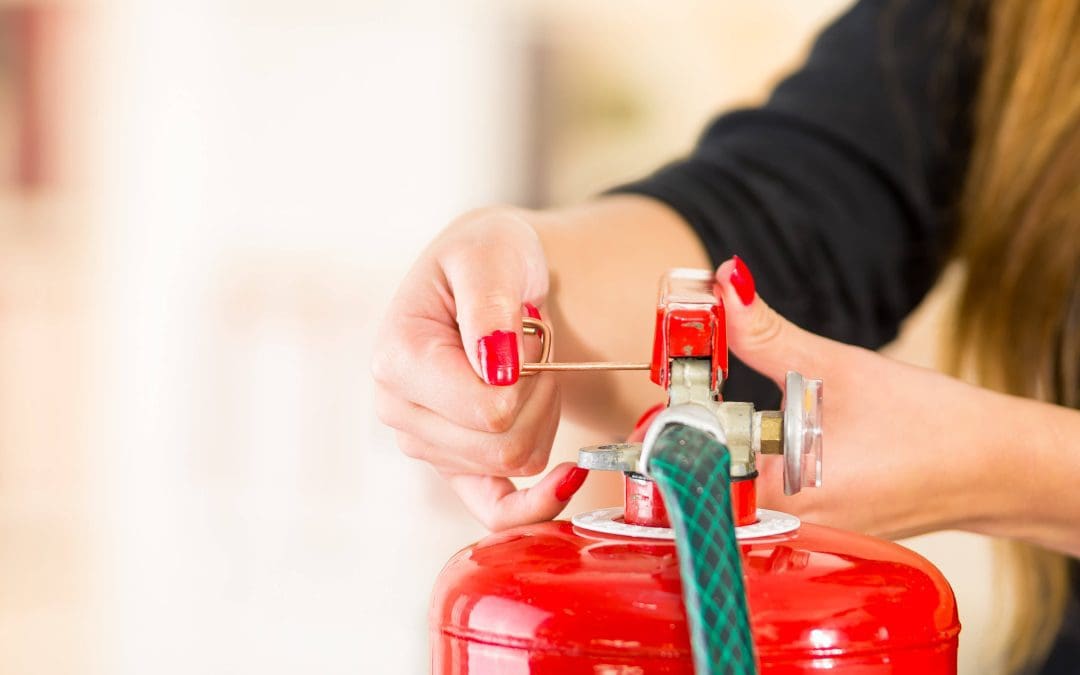Home fire safety is critical to maintaining a safe and secure living environment. Fires can start unexpectedly and spread rapidly, causing significant damage and endangering lives. By taking proactive measures, you can reduce the risk of fire in your home and ensure the safety of your loved ones.
Understanding Fire Hazards
Recognizing potential fire hazards is the first step in preventing home fires. Common sources of fires include cooking appliances, heating equipment, electrical systems, and flammable materials. Identifying these risks allows you to take preventive actions and minimize the chances of a fire starting.
Kitchen Fire Safety
The kitchen is a common area for fires to ignite, primarily due to unattended cooking. Always stay in the kitchen while cooking, especially when using high heat. Keep flammable items such as dish towels, paper towels, and curtains away from the stove. Ensure that pot handles are turned inward to prevent accidental spills. If a grease fire occurs, never use water to extinguish it. Instead, smother the flames with a lid or use a fire extinguisher rated for grease fires.
Heating Equipment Precautions
Heating equipment, including space heaters and fireplaces, can pose significant fire risks if misused. Keep space heaters at least three feet away from anything that can burn, such as curtains, furniture, and bedding. Ensure fireplaces have a sturdy screen to prevent sparks from escaping. Have your heating equipment inspected and cleaned annually by a professional to ensure it is in safe working condition.
Electrical Fire Safety
Faulty electrical systems and appliances are common causes of home fires. Regularly inspect electrical cords and replace any that are frayed or damaged. Avoid overloading outlets and extension cords, and never run cords under rugs or furniture. If you notice flickering lights, frequent blown fuses, or a burning smell, have a licensed electrician inspect your home’s electrical system immediately.
Smoke Alarms and Carbon Monoxide Detectors
Smoke alarms and carbon monoxide detectors are essential for early fire detection and warning. Install smoke alarms on every level of your home, inside bedrooms, and outside sleeping areas. Test them monthly and replace batteries at least once a year. Carbon monoxide detectors should also be installed and maintained to detect this colorless, odorless, deadly gas.
Creating an Escape Plan
In the event of a fire, having a well-practiced escape plan can save lives. Develop a fire escape plan that includes two exits from every room and a designated meeting place outside. Practice the plan with all family members, including children, to ensure everyone knows how to exit the home quickly and safely. Teach children how to stay low to the ground to avoid inhaling smoke and the importance of not re-entering the home once they have escaped.
Proper Use and Maintenance of Fire Extinguishers
Fire extinguishers can effectively put out small fires if used correctly. Place them in easily accessible locations, such as the kitchen, garage, and near fireplaces. Ensure that all household members know how to use them by following the PASS method: Pull the pin, Aim the nozzle at the base of the fire, Squeeze the handle, and Sweep the nozzle from side to side. Regularly check the pressure gauge and replace extinguishers as needed.
Home fire safety requires a combination of awareness, prevention, and preparedness. By understanding fire hazards, practicing safe habits, and equipping your home with the necessary tools, you can significantly reduce the risk of a fire and protect your family. Remember, taking proactive steps today can prevent devastating consequences in the future.
Fire Safety FAQs
How do I know if my fire extinguisher is still good?
Check the pressure gauge on your fire extinguisher monthly. If the needle is in the green zone, it’s functional. If it’s in the red zone, it needs recharging or replacing. Also, check the expiration date and inspect for physical damage or corrosion.
What types of fire extinguishers should I have in my home?
It’s recommended to have a multi-purpose (Class ABC) fire extinguisher that can handle most household fires, including those involving ordinary combustibles, flammable liquids, and electrical equipment. Place extinguishers in the kitchen, garage, and near any heat sources.
What should I do if I smell gas in my home?
If you smell gas, immediately evacuate your home and call the gas company or emergency services from a safe distance. Do not turn on lights, use electrical appliances, or ignite flames, as this can cause an explosion.
How can I teach my children about fire safety?
Teach children about fire safety by discussing the dangers of fire, practicing the fire escape plan, and showing them how to stay low to the ground to avoid smoke inhalation. Make sure they understand the importance of not hiding during a fire and never re-entering the home once they have escaped. Use resources like educational videos and fire safety games to make learning engaging and memorable.
Golden Rule Home Inspections provides comprehensive home inspection services in Lee, Collier, and Charlotte Counties. Contact us to request an appointment.

